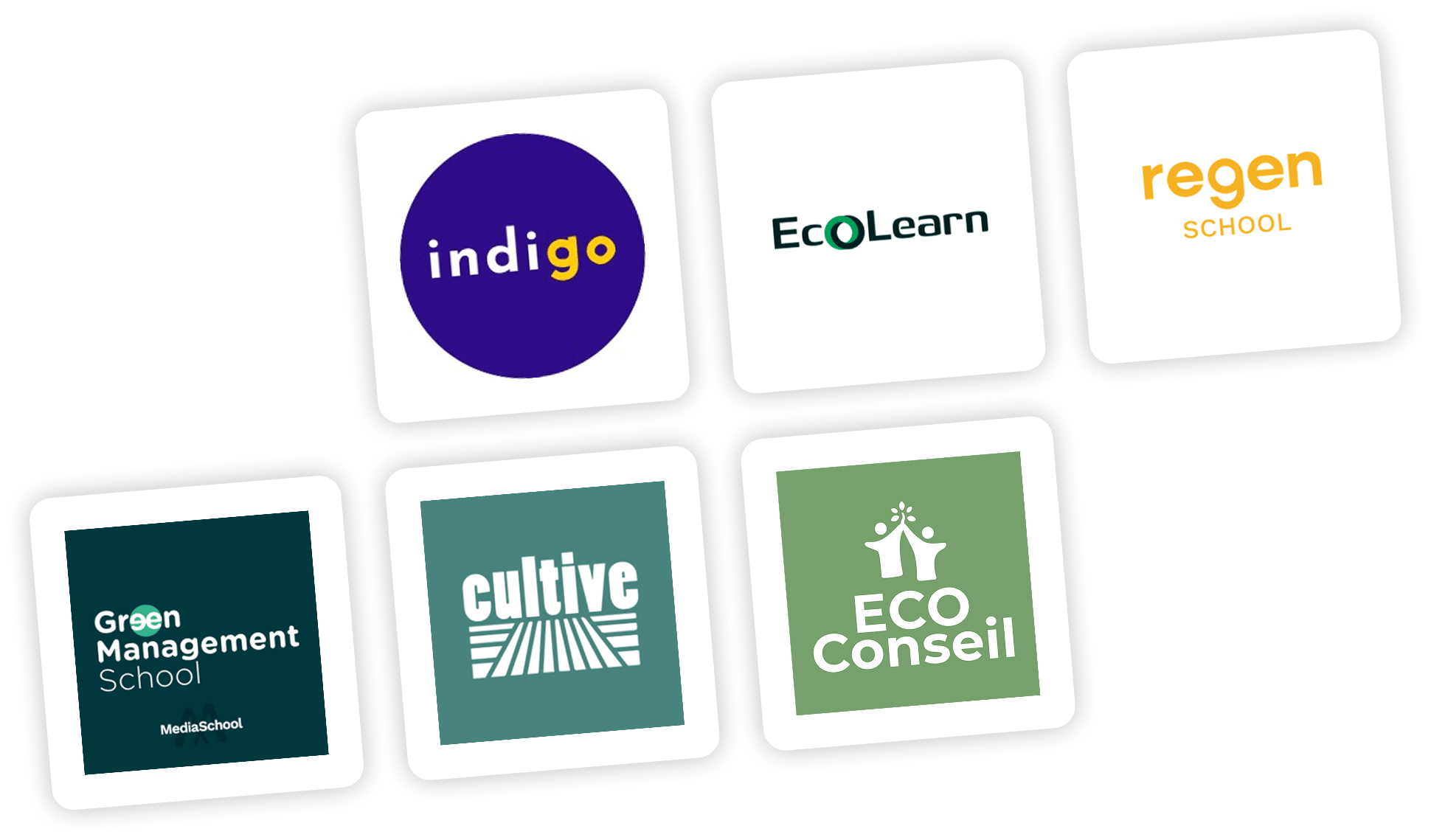Reconnecting with nature
In secondary school, when teachers asked teenagers what they wanted to do later, Fantine confidently replied "Environmental technician!". She already knew what training to take to become one. A few years later, she would become not a technician, but a teacher in nature management and protection. She then decided to set up her own training organization: Ecofsa, to complement the skills of environmental professionals and support profiles in retraining on the subjects of ecology, forestry and agriculture. She tells us all about it in this article.
"When I was little, I liked to understand why nature establishes itself in different ways".
Sensitive to and observant of the natural world around her, Fantine has been interested in living things since childhood. "As a little girl, I loved to understand why nature establishes itself in different ways and the reasons why such and such species exist. It was the key to my well-being." Bathed in an upbringing close to nature, with parents who were professionals in the field, she too chose to steer her studies towards becoming an environmental technician. "I first wanted to be in the field" she points out, but as job opportunities were once limited, she opted to teach in this field.
Professionalizing students for real job opportunities
As a teacher for 3 years of BTSA courses in Nature Management and Protection, leading to a career as an environmental technician, Fantine has observed that it is difficult for students on this course to find a job as soon as they graduate. The training is a little too generalist for her liking: "Students continue their studies or go on to do a professional degree afterwards." In 2011, this was compounded by the merger of animation and environmental management - previously disciplines taught separately - making the subjects less in-depth. She then joined OFB (l'Office Français de la Biodiversité), the leading training organization for all biodiversity-related professions, as a training officer. "There was also a lack of professionalizing courses at the OFB's adult continuing education level, to either complement one's skills as a young graduate or for professionals to up-skill in their positions." Faced with these two observations, she created Ecofsa in January 2021.
Take nature's needs into account in your work
Fantine wanted to work on the three nature-related themes of agriculture, ecology and forestry;
"In agriculture, the economic side of farming has become so important that farmers have forgotten their link with nature. Agroecology training aims to recreate this link and show that just because you start out in agroecology, it doesn't mean you have less production. Quite the contrary, in fact. We provide other methodologies to help you evolve your practices. We also share figures and feedback from people who have already started in this field, to show that it's possible. Of course, agroecology requires a lot of energy in the first few years, but thanks to these farming techniques, you also invest less time in the field.
As for training in ecology, it is designed to complement existing training courses. For example, we complement landscape gardening training by taking biodiversity into account in the design process;
Finally, for forestry training courses, I support forest managers and owners wishing to manage their forests in a more sustainable way, to combine production with biodiversity. For example, what habitats need to be taken into account? How can I have the least impact on biodiversity while meeting the specifications required of me? We also work with professionals and private individuals on tree selection and felling methods;
Every year, Fantine reviews its training catalog, conducting a needs survey among professionals in the field. This enables her to revise the modules in these 3 themes, according to the precise needs of the field.
A sensory experience
At Ecofsa, Fantine runs face-to-face training sessions with small groups of 10/15 people in large 100 m2 rooms. The atmosphere is special: "for each workshop, the room is immersed in a different atmosphere. For example, for a training session on mammals, fake fur will be present on the chairs. I can also play with scents: pine, vanilla..." These details are important to her, because they allow you to go very far in a short space of time, and call on the memory: "when I was running courses in BTS, I was already practicing sensory training and I had several times feedback from students telling me they had smelled such and such a smell, and that it had reminded them of such and such a course." It was important to her to explore learning modes that complemented oral and written learning. She explains,"it also comes from the fact that I'm dislexic and I think this form of learning would have helped me." For her, the more we exploit our senses, the more attentive we are and the better able we are to integrate everything we hear, everything we do. She also runs online training courses.
Helping you find your way in this field
With Ecofsa, Fantine has also integrated an "orientation" section for people undergoing professional retraining who want to go into more depth in one of these 3 fields: agriculture, ecology and forestry. "I help them to find out what training is right for their profiles in these fields, as training is currently little known," she points out.
To find out more
👉 Here are Ecofsa's training courses.



